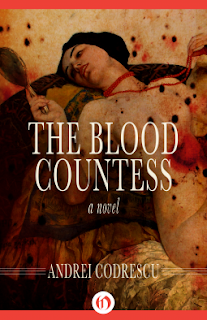Rating: ★ ★ ☆ ☆ ☆
Obtained from: Netgalley
Read: October 25, 2016
═══════════════════════════ ❧ ═══════════════════════════
*** NOTE: This review contains spoilers. Please take heed and proceed at your own risk.
It’s of little consequence to the average reader, but long story short, this line drew the author’s research into question and led me to abandon the novel several times over. Excuse me for pointing it out, but records show there were more than thirty marriages between the Hapsburgs and the Bavarian Wittlesbachs. It’s a pretty significant trend when looking at the family histories so the idea that Ludovika hasn’t considered the prospect is pretty preposterous. I found equally difficult to believe this fact could have been overlooked as the consequences of these marriages are pretty significant. In my mind, the research either wasn’t done or the facts were being ignored and I wasn’t entirely comfortable with either explanation. Similar instances throughout the book gave me reason to pause and I found it an uphill battle to ignore the inconsistencies I recognized during my reading.
I also struggled with the novel’s structure. The reader is aware that something isn’t right from the get go as Andrassy is introduce in the prologue, but Pataki dedicates the next eighty percent of the story to developing Elisabeth and Franz as a couple, building up their romance and slowing tearing it apart. I get the idea, but I honestly felt she was beating a dead horse. The affair was already established and spending so much time on the circumstances that gave rise to it seemed moot. I didn’t want to know how they got there, they were there, and I wanted to know what happened next, but it seems that is a story of another day and is not chronicled between these pages.
Character development was another issue for me as I found Pataki built Elisabeth up by dumbing everyone else down. The presentation also struck me as inconsistent and I often found myself wondering how Elisabeth got from Point A to Point B. For the sake of example, there is a moment where Elisabeth declares she will take back her household and be mother to her children, but paragraphs later she pulls a one-eighty, her fervor vanishes and she is seen abandoning the family out of jealousy and spite. Instances like this were common and made a significant impression on my opinions of both the primary and supporting cast.
I freely admit that much of my difficulty has roots in the passion I have for the material, but that aside, I was unconvinced by the style and tone of this telling and would have great difficulty recommending The Accidental Empress to other readers. It's an interesting idea, but the book hit all the wrong notes and lacked the charisma and dramatic appeal I expected when I requested it for review.
═══════════════════════════ ❧ ═══════════════════════════
"A deity does not quake simply because the crowd yells. An empress stands fixed, immutable: the calm that continues on, even as the world rages."
═══════════════════════════ ❧ ═══════════════════════════







